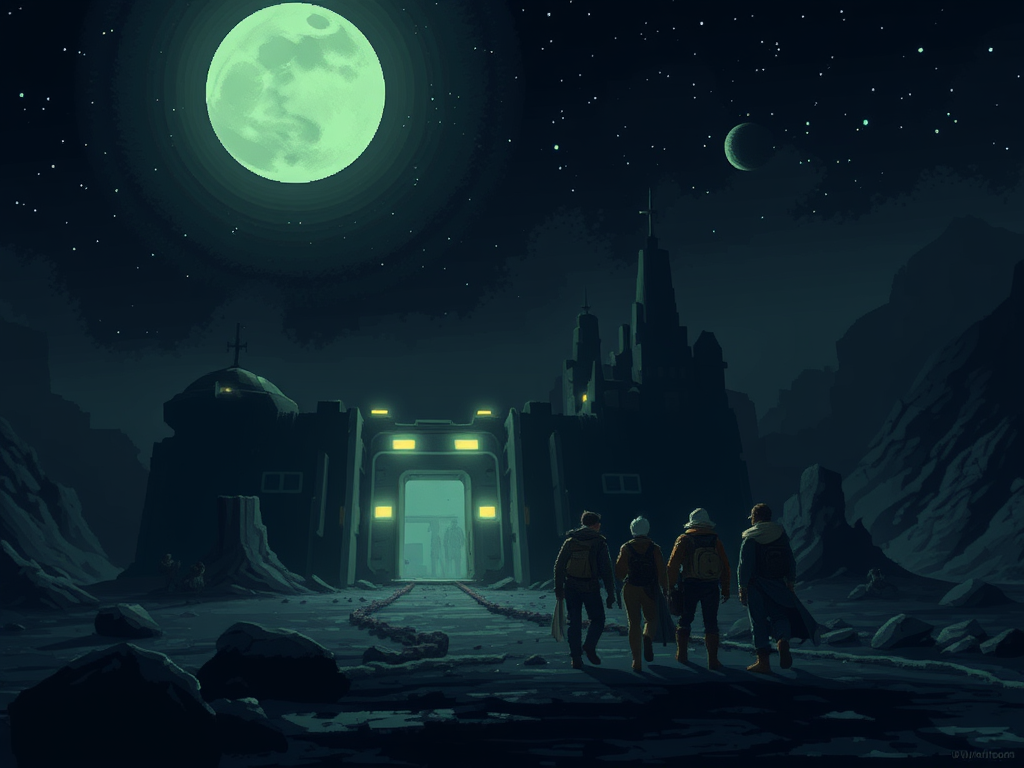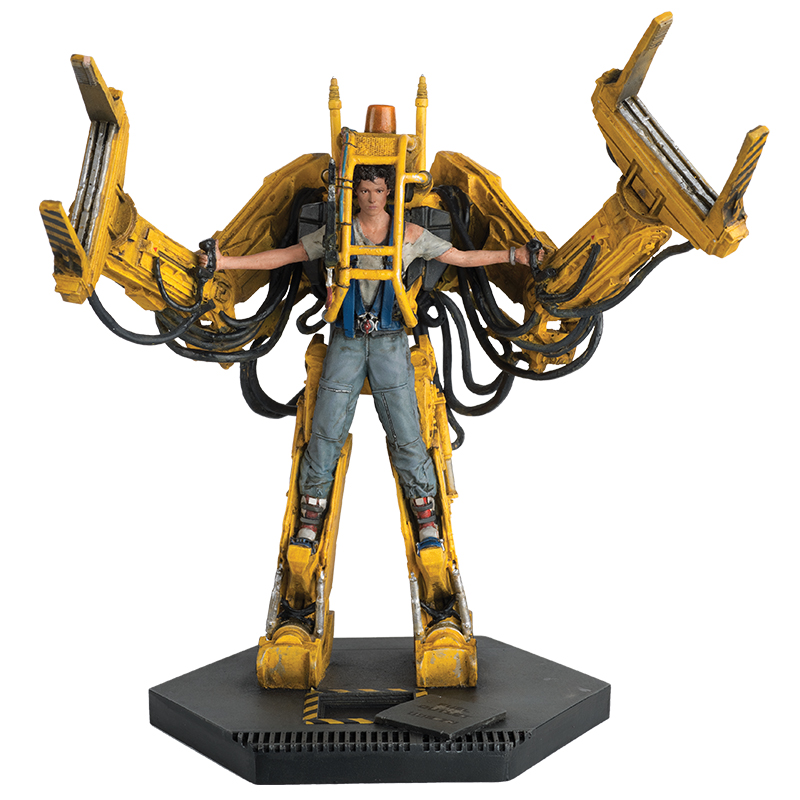Product: Rust & Redemption (Print & PDF)
Author: Bruce R. Cordell, Dominique Dickey
Publisher: Monte Cook Games
System: Cypher System
Summary: Whatever your apocalypse, Rust and Redemption is your tool for building it into a vivid, compelling Cypher System campaign. Explore the full breadth of the genre with a deep dive into the many ends our civilization might face (from zombies to climate collapse to supernatural invasion); the tropes and themes of the genre; and adventure ideas, set pieces, and creatures. Special rules cover scrounging for food and ammunition; kitbashing devices from scavenged technology; dealing with radiation, exposure, and mutagens; and other topics unique to this compelling genre.
Snap Judgement for Busy Wyverns: Another solid genre book entry from Monte Cook Games for the Cypher System. Post-apocalyptic media is very popular, but really high quality RPGs in the genre are few, and often lean towards the most gonzo interpretations possible – full of mutants and weirdness. Rust & Redemption covers that side of things, along with guidance for all sorts of sub-genres under the umbrella. Whatever your apocalypse was, this book has guidance for the survivors – your players-characters.
What is it?
The standard white book format of 224 pages, divided into worldbuilding discussion and guidance, player options, a sample mini-setting, and adventures.
Part 1 is worldbuilding, with chapters on building a setting, themes and realism, when/where/how the world ended, set pieces and plots, optional rules, threats/hazards, GM intrusions, and a short bestiary and NPC menagerie.
Part 2 is for players – new character options, a chapter on currency and equipment, and then some new cyphers and artifacts.
Part 3 details the mini-setting – “Radio Quiet Zone”. It is based, and located, in a real radio quiet zone in Virginia/West Virginia. Two locations are set up in detail, “Greenbrier Station” and “Upshur Observatory”. The final chapter in this part briefly talks about life outside the quiet zone.
Part 4 has 3 full Adventures (2 set specifically in Radio Quiet Zone) and 2 Cypher Shorts.
What makes it good?
The authors and designers at Monte Cook have really nailed down how to make these genre books really sing, even to those who might not otherwise be interested in the genre. We have never run, nor played, in a post-apocalyptic RPG. It can stand on its own, or be a subset of really any other genre. It can run from gritty and realistic, to absolutely maniacal and weird. You might set a game 20 minutes after the apocalypse (or even 20 minutes before!) or 1 billion years after. We were exposed to post-apocalyptic settings long before we even knew the word for it with Thundarr the Barbarian, and the genre has long loomed over American society since the first atomic bomb went off in 1945.
That’s a lot of ground to cover, and this book really does make an effort to do it. It starts with a discussion of well-known post-apocalyptic media, then transitions into how to world-build your own apocalypse. Extremely helpful is the list of set-pieces for each kind of apocalypse they identify.

The Optional Rules segment does a good job of adding practical methods for working with one of the major themes of post-apocalyptic stories – survival. Useful guidelines, tables and subsystems are included here, and really help frame out post-apocalyptic play.

Aside from these more technical details, there’s a lot of information around themes in a post-apocalyptic game – and for good reason. We think overarching themes are a much larger and more important part of a post-apocalyptic setting than in other settings. Often, a setting like this is used to strip away everything the author (or designer) feels doesn’t matter in the story, so that a central theme can be brought into the forefront. This is also a technique often used in war movies that don’t focus on the war itself, but on the people fighting the war. Special attention must be paid to themes of Survival, Hope, Despair, Redemption – and Humanity itself – to truly explore what it means to live in a post-apocalyptic world. That is, assuming your game is about exploring those deeper constructs – it also might just be about blowing up aliens, mutants and robots! Or maybe it’s all those things together. But not to worry, it’s all covered here.
The player options presented here are great! We loved the amount and kind of new options put forth, they are dead-on appropriate for the theme, interesting and compelling. We get some new species – humanoid dogs, cats, and moths, and then some fairly advanced rules for mutants. We’re not particularly interested in playing anthropomorphic animals…but it’s our understanding there might be a rabid audience out there for that, pardon the pun.
Radio Quiet Zone is an interesting mini-setting, but we didn’t find it especially compelling for long-term play. Because of its isolated nature, it seems best suited to tell isolated stories. This seemingly minor quirk sent us into a full-on existential crisis about the whole genre, but more on that later. Radio Quiet Zone has some good use of the rules set forth earlier, and has a number of really well-developed NPCs, they felt more fleshed out than the other genre books we’ve read. The setting allows for multiple post-apocalyptic tropes to show up – cannibals, raiders, rogue AI, communication loss from the outside world, even some big hooks for alien contact or travels further afield. It’s all very well done, just didn’t grab us as much as The Revel – but certainly was more appealing than Bontherre.
The included adventures are pretty good upon our first read through. “No Quick Fix” has some neat set pieces and creepy clues to the mystery, though there is one puzzle that might threaten to be a session-stopper if the players can’t figure it out. “Bitter Seeds” promises some intense action and encounters with some strange plant-creatures. Designer/Author Bruce Cordell will be running this adventure at Norwescon on March 29, 2024 so if you’re in that area, and reading this in time – we would jump on that opportunity. “Safe Zone” is an interesting one-shot adventure set in a major city as the world ends around you. Definitely a “what would you do?” style adventure. Growing up in the 80s, this fear was real to us (and maybe still should be), so playing it out feels a little close to a nerve. It’s probably not for someone who has true phobias about nuclear war or attacks on cities. The two Cypher Shorts are indeed short and would take some significant fleshing out to get to the table – but they’re very good session inspiration. Definitely something we’d use to get past staring at a blank page.
One thing to call out, something new to this book since the last ones we read, is the inclusion of links and QR codes to sample pregen characters for the adventures. This is a stellar addition to the book, and we hope they not only do more of it going forward, but expand upon it with the nearly launched Cypher Character Creator, part of the rapidly growing Cypher Tools suite. Excellent work from Monte Cook Games on this initiative.
We also want to call out that many of the rules, tables and supplementary information included in this book were added to the Cypher System Open License within days of its retail release – something very unexpected but greatly appreciated. This content is open for all creators to start using immediately. With that, for example, we could rapidly turn our #Lore24 posts on Cenotaph1919 – a post-apocalyptic World War I era War of the Worlds inspired setting – into a full fledged Rust&Redemption supplement. Will we do that? Maybe someday.
How do I use it?
Read it and get to work. We think how to use these genre books is pretty clear at this point – get the Cypher System Rulebook and start building your world. There’s a table with some plot/adventure seeds in here to get you going too if the included adventures aren’t compelling, or suitable, for your table.
Downsides
Here comes the existential crisis for us. As we started to play out campaign ideas in each of the post-apocalyptic settings, we ran into a real problem – the endgame. Now it’s fair to say that most RPG campaigns never get to endgame content, and fall apart long before high-tier play. However, that doesn’t mean the GM shouldn’t be considering it early on, so that hints and hooks can be dropped and events can be framed.
For fantasy games, we’ve long understood endgame play to be domain play – building and defending a kingdom – or to face world-ending threats. This has been part of D&D from the beginning, and into the present day. In a sci-fi game, often endgame play is similar – facing galactic threats, settling a planet, founding a federation – bringing peace to the galaxy. These epic level goals are well known through media. Star Wars, Star Trek both engage with these goals.
When it comes to post-apocalyptic goals, things became much harder. The media in the genre heavily focuses on the themes and not the goals. Indeed, even discussing this problem with other members of the Cypher community led to a falling back onto themes, and not goals. Some endgame goals are obvious, like Alien Invasion -> Repel the Aliens. Often media puts forth one of two objectives to the protagonists – either Finding Utopia, or Founding Utopia. If the apocalypse was caused by a plague – then a cure for the plague might be an endgame goal (though this also might be too late). Because of the nature of a post-apocalyptic game, characters in the game can’t be threatened by another apocalypse. The world has already ended, and the theme of survival is so strong – it’s nonsensical to threaten the end of the world when the characters might die from a bad can of beans tomorrow. Rust & Redemption puts forth a relatively detailed discussion of a Christian-inspired rapture and armageddon, and for the life of us, we can’t imagine what players and characters should be aspiring to do in such a scenario.
This seems important to us. When consuming some media in the genre, even critically acclaimed works – for example, The Road – the entire point of the book is survival and humanity – but there is no endgame. Existential examination makes for an interesting one-shot, but not campaign play. We don’t think dozens of sessions framed around nearly starving makes for a fun game. There has to be something more.
And that’s where it all sort of fell apart for us in this book. There’s almost zero guidance or suggestion of what characters should be aspiring to in these settings. And because it’s such an important question for gameplay, we feel it should have been better addressed.
Our suggestion to GMs wishing to run a post-apocalyptic game is this – during Session 0, or during the setting pitch and discussion – ask the players – what sorts of thing would satisfy your character and you such that you’d sit back and say “Yep, we did it – we’re done”. How would these characters retire? What achievements would feel satisfying as an “end”? Even if you never get there in-game, knowing what sorts of things lie at the end of the road is important.
Final Thoughts
We really enjoyed the book. We wish Radio Quiet Zone had been a little more expansive and deep (nothing has come close, in our mind, to The Revel). The player options put forth were quite good. The focus on survival and the rules around it are a welcome addition to the Cypher System toolset. High-quality work was done on the adventures, beasts and NPCs. There’s a ton of really good ideas in this book, and a really good examination of the genre. We wish there’d have been a little more on how to reach the post-post-apocalypse.
Recommend or Not?
Recommend. It turns out that there’s post-apocalyptic stories being told where you least expect it. You might want to run a fantasy game set after the fall of a great empire – that’s the post-apocalypse. There are themes here that would apply to a historical game set in Northern Europe in the 500s. We want to go through this book and flesh out Cenotaph1919. After thinking about it for a heartbeat, Battlestar Galactica (2004) is absolutely a post-apocalyptic story, and that didn’t even register with us at the time. It was just “sci-fi”. You might find this book useful as your players fail to defeat the Big Bad at the end of your “regular” campaign – ushering in the apocalypse. Now what? New characters seeking to avoid Rust and achieve Redemption. Now there’s an endgame goal.





3 responses to “Review: Rust & Redemption (Cypher System)”
Nice review. As far as the endgame goes, and averting a new apocalypse, that reminds me of the cycle that rolls through A Canticle for Leibowitz, one of my all time favorite books, but not one that gets brought up much when post apocalyptic settings come up.
Canticle is one of my favorites of all time. I feel like that concept would work really well in a game of Microscope or Kingdom, but certainly a lot hard to gamify for an RPG campaign….
It is my curse to dream of weird campaign structures, like my elusive desire to run a mythos RPG campaign that somehow manages to work like Eternal Darkness. :)